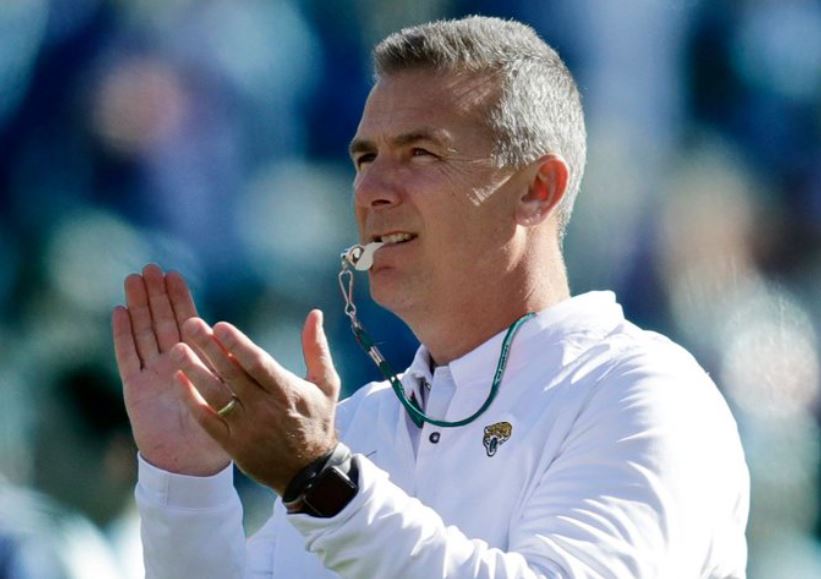

“Coming from southeast Ohio, it’s a very impoverished area, and the poverty rate is almost two times the national average… For all those kids in Athens and Athens County who go home to not a lot of food on the table, hungry after school. You guys can be up here, too.” Joe Burrow echoed these words of hope in his Heisman speech and became not just the hero on the field but off the field, too. His Heisman speech is still considered one of the most iconic in CFB history, which gave hope to thousands of kids with football dreams in their eyes.
Watch What’s Trending Now!
Like Joe Burrow, several other icons in football history have transcended that football field and cemented their legacy for years to come. Be it Tim Tebow or Johnny Manziel, their heroics still live fresh in the memories of CFB fans. However, Urban Meyer, former Ohio State head coach, raises serious concerns about putting that ‘hero‘ tag on football players.
Why do football players earn legendary status? Why is there something almost mystic and fantastical about sports? It has a lot to do with identity rather than the sport itself. When a player plays for a team, they aren’t just playing for themselves. Their jerseys carry legacies, which sometimes stretch to over 100 years. Every program comes with a distinct identity, and that tribalism connects the fans to every player who donned their team’s colors. The ‘hero’ tag on players usually gets attached in moments of highs. A game-winning touchdown, a stop in the end zone to clinch the title, a performance against their rivals—every moment contributes to how a player becomes bigger than themselves in the eyes of fans.
ADVERTISEMENT
Urban Meyer himself is the national championship-winning head coach, and in his tenure, Ezekiel Elliot achieved that legendary status for Ohio State’s fans. His on-field dominance when he produced those 246 rushing yards and 4 TDs in the final was just the tip of the iceberg. What mattered to the fans was that he connected with the common folks with his ‘crop top’ jersey, which quickly became a trend. His leadership qualities also played their part in helping cement a 50-4 record in his three years at OSU. Still, Meyer has his reservations about calling a football player a ‘hero.’
On ‘Triple Option’s’ 28th May episode, the hosts (Urban Meyer, Mark Ingram, and Rob Stone) welcomed Mike ‘Boots’ Barker, a retired Navy SEAL, to commemorate the Memorial Day weekend. Meyer and Barker became friends after they met at an event by Folds of Honor, an organization that works to provide educational support to the families of fallen and injured members of the US military.
While talking about his friend, the former OSU coach got into the definition of what makes someone a hero. Per Meyer, “We actually looked it up. It’s a guy who’s admired and idolized for courage, outstanding achievements, or noble qualities. I don’t know if I agree with that. That’s a dictionary description of what a hero is.”
ADVERTISEMENT
The outstanding ‘achievements’ part of the definition makes it a wider net for someone to be considered a hero. In that regard, winning your program a natty qualifies as an outstanding achievement. Urban Meyer took issue with that. “I think a hero is someone that puts others ahead of self and even if you put yourself in harm’s way, to me, that’s a hero. And that’s how much love I have for our veterans that serve our country… Boots is a hero.”
Mike Barker comes from a family of military veterans. His grandfather served in World War II, and his father was deployed in the Vietnam War. Three generations of sacrifice for the nation. So, it’s understandable when Urban Meyer doesn’t want to club a military person and a football player under the same tag of ‘hero.’
ADVERTISEMENT
“Just because God blessed you with great size and speed does not make you a hero. Scoring touchdowns is not a hero. That’s fun. That’s great. But heroes come awfully cheap nowadays. Whether you’re a musician or a coach, or an incredible athlete, I just get very upset when I hear people either label or idolize these people.”
The message is clear as day, and Urban Meyer is urging us not to idolize players who haven’t risked their lives for their country and play for money or fame. Being a Navy SEAL and risking your life for the good of millions of citizens is 1000 times harder and more courageous than playing football.
ADVERTISEMENT
Urban Meyer calls out the SEC for Georgia bias?
Urban Meyer, after leaving his coaching career behind, has donned the role of a podcaster and analyst, as we see him regularly in the ‘Triple Option’ podcast. Meyer never minces his words and speaks candidly about everything. So when asked how Kirby Smart manages to win every year despite losing more than 11 or 12 players to the NFL, the former OSU head coach had an interesting take.
Meyer pointed to the easy home games that Georgia regularly gets and how it’s something unique for them. “I’m sitting here looking. Here you go, boy. Look at the Oh, Lord. Georgia’s schedule. They are playing nine (home games). This is an SEC schedule, man.” Meyer acknowledged that it’s not possible to control the schedule but said that games like Austin Peay, Charlotte, and Marshall (2025) are strategically scheduled to avoid overload, signaling SEC bias.
Top Stories
Jerry Jones Announces Retirement Plans as Dallas Cowboys Owner Makes Triple Decision on Coaching Hiring
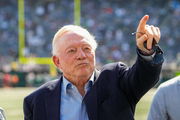
Mike Tomlin Receives New Job Offer as Steelers Make Final Decision on Firing HC After Aaron Rodgers’ Fury – Report
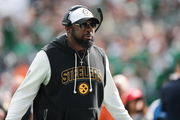
Amanda Nunes’ Alleged Cousin Knocks Out Violent Customer Outside Bar as Fans Urge Dana White to Sign Her

Travis Kelce Announces New Career Move Away From Chiefs After Confirming Retirement Stance
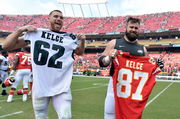
Kayla Harrison–Amanda Nunes Fight Falls Apart Days Before UFC 324 as Dana White Dealt Major Blow

Ravens Owner Steve Bisciotti Announces Plans to Sell Franchise and Explains John Harbaugh’s Firing
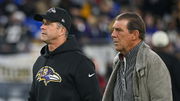
“The schedule’s what it is for SEC-wise. Of course. No, you can’t control it by scheduling. But you can control Marshall, Austin Peay, and Charlotte. And they got nine, count them, nine home games. Yeah, come on, Kirby. What in the world was that?” Said Meyer. In the 2023 season, UGA lost 13 key players to the NFL draft, including their best tight end in history, Brock Bowers. Yet, Georgia went on to win the SEC championship and went deep into the playoffs. Was it the advantage of home games or just Kirby Smart’s brilliance as a head coach?
ADVERTISEMENT
ADVERTISEMENT
ADVERTISEMENT
ADVERTISEMENT

